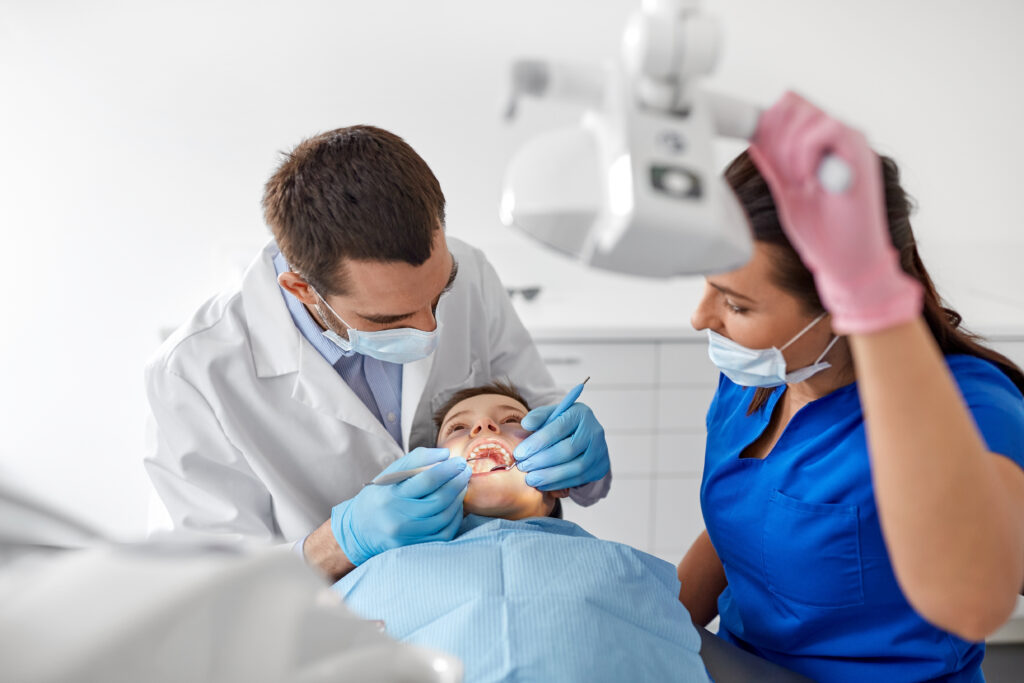While NHS dentists are making some progress in clearing treatment backlogs, the pandemic has continued to have a devastating impact on the numbers of people accessing treatment.
And though companies appear to have grasped the nettle to help employees secure health benefits as long term sick numbers continue to soar, advisers report there has not been an “explosion” of new employer dental care policies.
But the good news is some providers are adapting to this new reality in which demand continues to soar and individuals feel forced to go private.
More treatments delivered
Over the summer, NHS Digital revealed NHS dentists delivered 23% more courses of treatment year-on-year.
Good news one would think with 32.5 million courses of treatment delivered in 2022-23, up from 26.4 million courses of treatment delivered in the same period of the previous year.
But the devil was in the detail. And despite an improved performance over the past year or so, the figures remained markedly down on pre-pandemic levels, when 39.7 million courses of treatment were delivered in 2018-19.
And behind every statistic there are real people and this fact extends just as much to advisers and their families.
Travelling for treatment
Joanna Streames, owner of Velvet, told Health & Protection her daughter is one of the many who have struggled to land a dental appointment on the NHS.
“Florence is having to get a dentist appointment in the UAE because she got kicked off here for not having gone for over a year,” Streames revealed.
“I’ve heard stories of people who presented as an NHS patient and were refused an appointment, but when they presented as a private patient were able to get in quite quickly.”
But the pain associated with toothache can be just as damaging to employee productivity as other ailments contributing to near half a million of the UK’s long term sick.
No explosion of dental policies
So is this translating to an increase in employer dental policies?
Not so, according to Mike Hesch, head of UK employee benefits at Engage Health Group.
“Demand is probably at its highest now, with increasing cost and the lack of supply of NHS dentists there is a real need from an employee perspective,” Hesch said.
“But this is not translating into an explosion of new policies as employers still have to manage costs and offer the right mix of benefits that help to attract and retain their staff.
“The market understands this and therefore we believe more private medical providers will offer the dental cash back as a free option to entice new clients,” Hesch adds.
“As advisers we need to make companies aware of the different options and costs to add dental cover.
“We are certainly seeing more and more companies offering cash plans as they offer good value giving a range of health related benefits not just dental, and give the employee some choice to upgrade their cover or add their dependants.”
Risk to productivity
Claire Ginnelly, health expert and vice-chairwoman of the Association of Medical Insurers and Intermediaries (AMII), argues a decrease in workplace productivity could still be a key determining factor in employers taking out dental cover.
“Employers will have a budget and they will look at the issues facing their workforce to decide how that money is best spent,” Ginnelly adds.
“If more of their employees are facing issues accessing a dentist and this translates into lost time from work, they are more likely to want to look at an insurance product to offer some cover.”
And it is an option some small businesses are exploring, says Isaac Feiner, owner of Lifepoint Healthcare.
“We are seeing delays on the NHS dental side and people are pushing themselves to go private. Either self-funding, or indeed taking out suitable dental plans where possible.
“Owners of small businesses are certainly engaging this process as they have a vehicle through which to set up a small SME dental scheme that helps offset the dental costs.”
Demand only going one way
Though ultimately, it looks like demand for dental services whether funded by the state, individual or the employer is only set to increase.
“There is no reason why demand will do anything other than increase over the coming years,” Ginnelly says.
“Access to NHS dentists is reducing but demand for treatment remains high. More and more people are having to turn private to keep their dentist and for some people, especially in a cost of living crisis, the fees are too high.
“If employees could access this treatment via benefits put in place by their employer it can only be a positive.
“If demands for private treatment increase, providers may be more inclined to look at how the benefit can be incorporated into policies.”
Feiner agrees – adding demand will certainly increase but there is work for insurers to do for retail customers.
“My feelings are that while on the SME side the products offer robust levels of cover, I do feel that consumers need better options – higher levels of allowance and cover available across the consumer cash plan and dental offering are needed,” he concludes.
